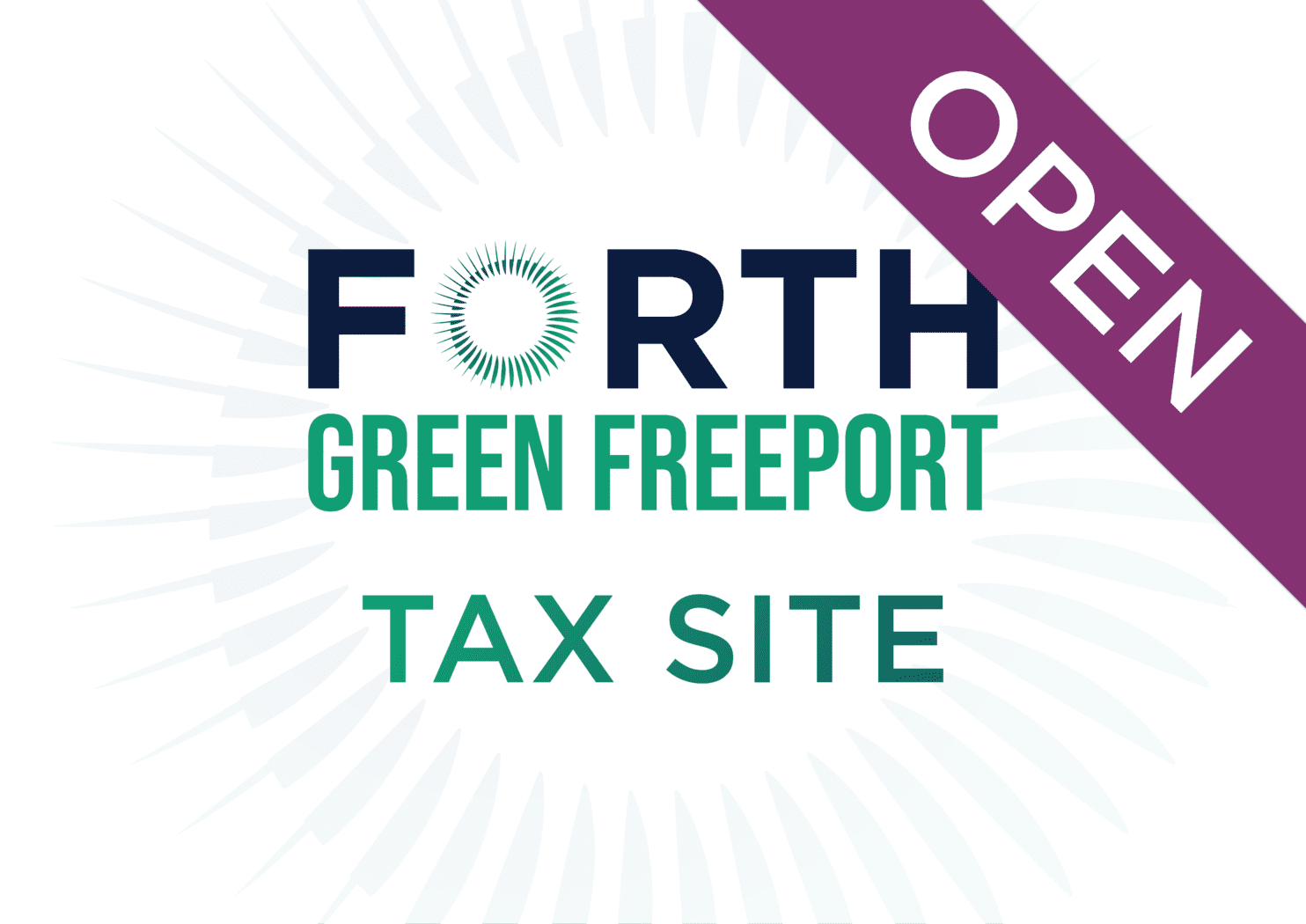Forth Green Freeport is “Open for Business” as tax sites go live
Wednesday 12th June 2024
Forth Green Freeport is “Open for Business” as tax sites go live

The Forth Green Freeport (FGF) is officially “open for business” today, 12 June 2024, following approval from the Scottish and UK Governments of its Outline Business Case and the designation of its three tax sites located in Grangemouth, Rosyth, Mid-Forth (Leith and Burntisland). This major step unlocks the investment incentives to deliver the green freeport vision.
This significant milestone for the public / private consortium, which is Chaired by Dame Susan Rice DBE, will attract new businesses and new jobs into the FGF area, aided by a suite of financial incentives to deliver major economic and net zero benefits for Scotland as a whole and the local communities in Fife, Falkirk, Leith and beyond.
Focusing on the key target sectors of offshore wind, hydrogen, sustainable fuels, modular manufacturing and logistics, FGF will support the re-industrialisation of Central Scotland and large-scale economic regeneration over the next decade.
Forecasts indicate that there is the potential to attract £7bn of private and public investment over the next decade, delivering Gross Value Added (GVA) of £8.4bn. This could generate up to 38,350 well paid, highly skilled, green jobs, with almost 19,000 of these being direct gross jobs linked to the FGF’s target sectors and tax sites.
Dame Susan Rice DBE, Chair of Forth Green Freeport, said: “This is it, Forth Green Freeport is officially open for business. It is an important time for the Green Freeport as we move through the business case development phase to delivery for Scotland.
“Through innovations in offshore wind manufacturing, assembly and commissioning, alongside innovative shipbuilding, modular assembly and hydrogen manufacture, the country’s net zero targets can be boosted by Forth Green Freeport.
“This is a long-term project and one which we know will deliver real benefits to the local communities through economic growth, skills re-training and training and access to high quality, green jobs.”
The potential of the FGF was highlighted by the news that Vestas has identified the Port of Leith as a possible location for a wind turbine blade manufacturing facility. This is an example of how Green Freeport status can be used to boost Scotland’s renewable energy credentials with the potential to create hundreds of quality, green jobs in Scotland, supporting the just transition to net zero.
The investment incentives will only apply to businesses who commit to and deliver against a set of demanding Investor Principles that will guide all landowners and developers. This will include abiding by the Fair Work Charter, which prioritises the rights, wages and working conditions of employees. The principles also require businesses to buy into Forth Green Freeport’s net zero commitments.
Strong governance is a key thread with a governing board with public and private sector members already established and active and with an independent Chair, Dame Susan Rice DBE. It comprises representatives from all consortium partners and includes elected members from all three local authorities and advisers from both the Scottish and UK Governments. An invitation has also been extended to the Scottish Trades Union Council (STUC) to have a worker representative on the board.
Dame Susan Rice added: “Strong governance is at the core of Forth Green Freeport as we focus sharply on ensuring that the Green Freeport operates to the highest standards. Workers’ rights will be protected, money will be spent wisely and all of the investors we attract to benefit from the incentives that the Green Freeport offers will be as committed as we are to ensuring that the most significant beneficiaries from this long-term initiative are the people from the communities around the Forth Green Freeport.”
